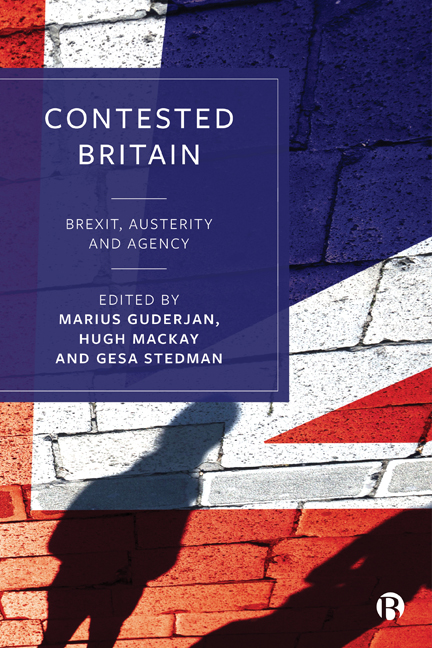14 - Brexit, Devolution and Northern Ireland's Political Parties: Differential Solutions, Special Status or Special Arrangements?
Published online by Cambridge University Press: 10 March 2021
Summary
Introduction
To understand agency in the situation in Northern Ireland requires an appreciation of the underlying constitutional fault line underpinning politics and government in the Province. Northern Ireland's disputed status and divided society, based on a constitutional cum ethnonational cleavage with diametrically opposed views as to its long term geo-political position and best interests, provides a distorting lens or prism through which agency is refracted. One community sees Northern Ireland as continuing as an integral part of the UK (‘Unionist’ or ‘Loyalist’); the other desires a rupture of that Union and reunification with the rest of the island to form an all-island ‘United’ Ireland (‘Nationalist’ or ‘Republican’). With the collapse of its devolved institutions in January 2017, the Province's direct and formal political input into the negotiating process around Brexit has been much reduced, notwithstanding the ‘backdoor’ influence enjoyed by one of the leading political parties, the Democratic Unionist Party (DUP), as a result of its ‘confidence and supply’ arrangement (involving a formal written agreement) with the minority Conservative government at Westminster, following the general election in spring 2017. Agency ‘can be constrained by unequal power relations and/or the absence of enabling affordances and thus is not regarded as dependent on an individual's will or capacity alone but as a contextually enabled and constrained capacity’ (Miller, 2016, p. 350). Thus, in terms of Hay's ‘questions of political power [and] the question of who holds the whip hand’ (1995, p. 206), for the time being, it has been the DUP which has enjoyed an unexpected leverage over Westminster arithmetic and UK government policy. Concurrently, for the DUP's erstwhile coalition partners in the Northern Ireland Executive, with that avenue of influence not available (and from its perspective unsought anyway), Sinn Féin has pursued its own agenda with robust lobbying instead in the Republic of Ireland, seeking to outflank the Dublin government on the Brexit issue, with a view to building up its domestic political capital as the next Irish general election approaches.
This chapter examines Brexit and devolution, insofar as these relate to the devolved government in Northern Ireland, but also to those in Scotland and Wales to afford comparative perspective.
- Type
- Chapter
- Information
- Contested BritainBrexit, Austerity and Agency, pp. 203 - 218Publisher: Bristol University PressPrint publication year: 2020



